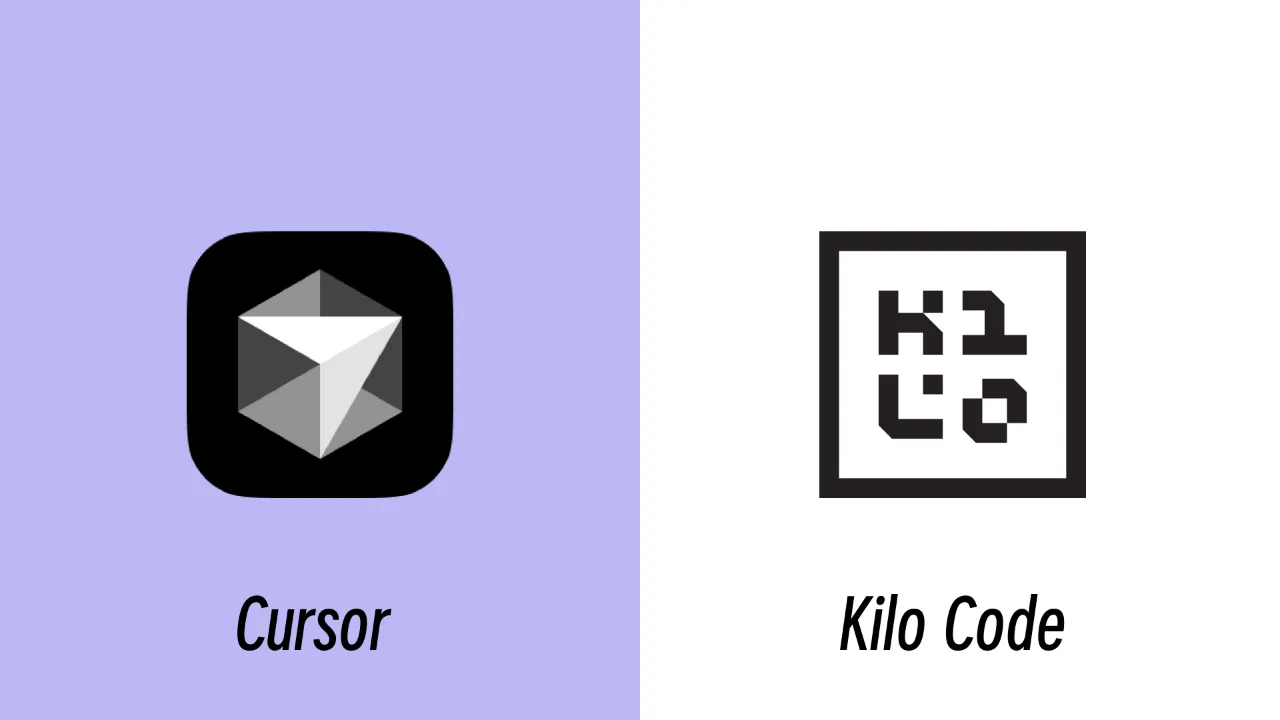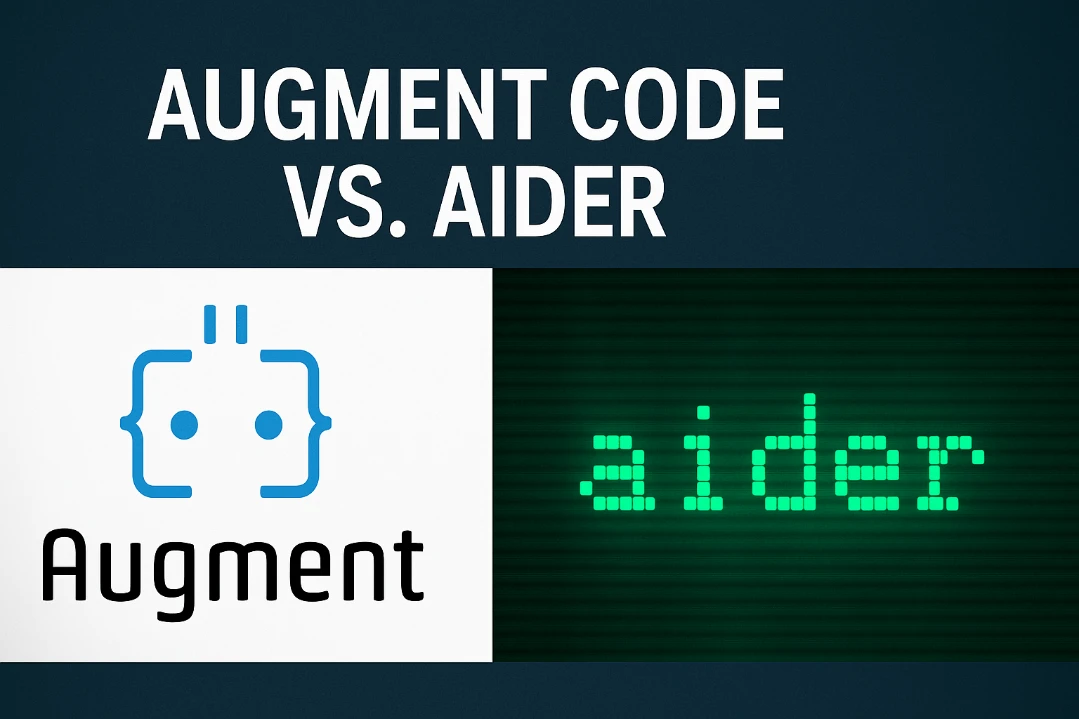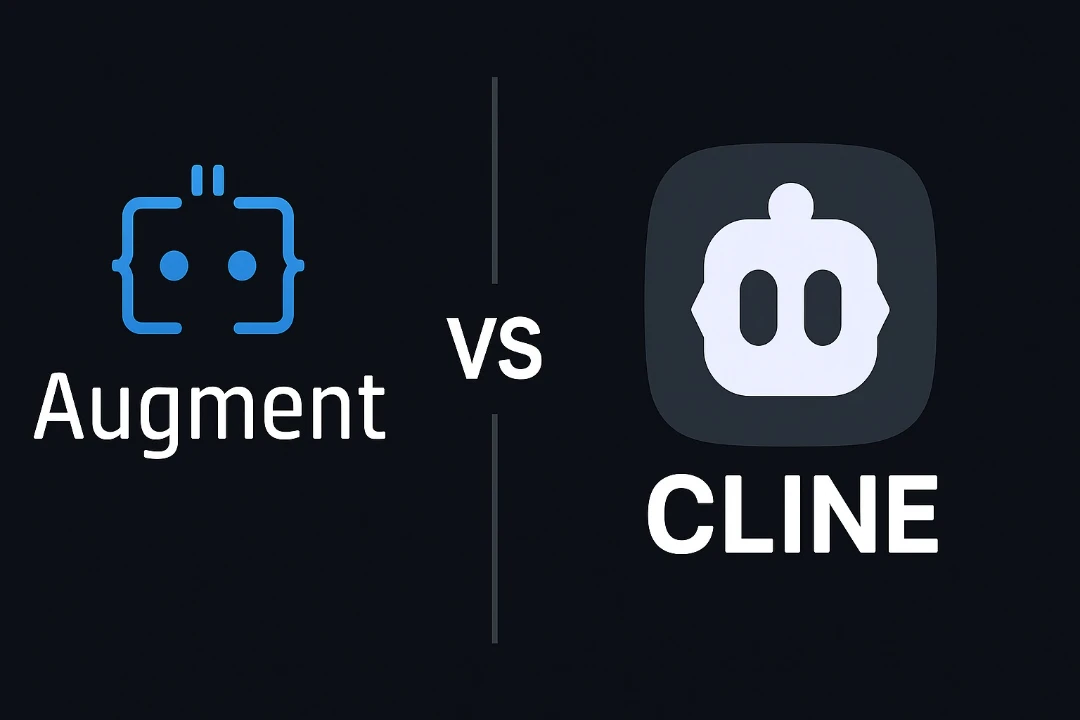
Kilo Code vs Cursor: Open-Source vs Proprietary AI Coding Assistants (2025)
Kilo Code vs Cursor: Open-Source vs Proprietary AI Coding Assistants (2025)
In the rapidly evolving landscape of AI-powered development tools, developers are increasingly faced with a choice between open-source and proprietary solutions. This comparison examines two prominent options: Kilo Code, the open-source VS Code extension, and Cursor, the proprietary AI-first code editor.
This comprehensive guide will help you understand the key differences, strengths, and ideal use cases for each tool as we move through 2025.
Understanding the AI Coding Assistant Landscape
Before diving into the specifics, it's important to understand the fundamental difference in approach between these tools. While both aim to enhance developer productivity through AI, they represent different philosophies in the developer tooling ecosystem.
Kilo Code embraces the open-source model, offering transparency and customization, while Cursor provides a polished, integrated experience at the cost of being a closed-source, proprietary solution.
Origin and Philosophy
Kilo Code: The Open-Source AI Agent
Kilo Code emerged as a fully open-source AI coding assistant specifically designed for VS Code. It has gained popularity among developers who value transparency, customization, and control over their development environment.
An open-source AI agent VS Code extension that helps developers write code more efficiently by generating code, automating tasks, and providing suggestions.
Kilo Code's core philosophy centers around:
- Complete open-source transparency with no vendor lock-in
- Pay-what-you-use pricing that matches provider rates
- Support for multiple LLM providers (Anthropic, OpenAI, Google)
- Local model support for privacy-conscious users
- $20 free credits to get started
- No commission on token usage
Cursor: The AI-First Code Editor
Cursor is a proprietary, AI-first code editor built on VS Code's open-source core but with significant modifications and proprietary AI integrations. It's designed from the ground up with AI assistance as a primary feature.
Cursor's philosophy includes:
- Deep AI integration throughout the development workflow
- Proprietary AI models optimized for coding
- Seamless collaboration features
- Built-in terminal and code review tools
- Focus on developer experience and productivity
Core Feature Comparison
Code Generation and Editing
Kilo Code:
- Multiple agent modes (Orchestrator, Architect, Code, Debug)
- Context-aware code generation
- Support for major LLM providers including local models
- Open-source codebase for complete transparency
- Customizable AI behavior and prompts
Cursor:
- Deep AI integration with the entire editor
- Proprietary AI models fine-tuned for coding
- Inline AI suggestions and completions
- Built-in code review and refactoring tools
- Seamless integration with the editor's UI
Key Difference: Kilo Code offers more flexibility with its open-source nature and multiple agent modes, while Cursor provides a more polished, integrated AI experience out of the box.
Integration and Extensibility
Kilo Code:
- VS Code extension
- Supports multiple LLM providers
- Local model support
- Open API for custom integrations
- Community-driven extensions
Cursor:
- Standalone editor with VS Code compatibility
- Proprietary AI integrations
- Built-in terminal and tools
- Limited extensibility compared to VS Code
- Focused on providing a complete, opinionated solution
Key Difference: Kilo Code offers more flexibility and customization options, while Cursor provides a more integrated but less flexible experience.
Security and Privacy
Kilo Code:
- Open-source with no data lock-in
- Option to use local models for complete privacy
- Transparent about data handling
- No requirement to send code to third parties
Cursor:
- Proprietary software with closed-source components
- Requires sending code to their servers for AI processing
- Enterprise-grade security features
- Less transparency about data handling
Key Difference: Kilo Code offers better privacy options for those who need to keep their code confidential, while Cursor provides enterprise-grade security but with less transparency.
User Experience
Kilo Code
- Familiar VS Code interface
- Multiple agent modes for different tasks
- Requires some setup and configuration
- Active community support
- Steeper learning curve for advanced features
Cursor
- Polished, AI-first interface
- Seamless AI integration throughout the workflow
- Quick setup with minimal configuration
- Professional support available
- More intuitive for beginners
Performance and Resource Usage
Kilo Code:
- Lightweight extension
- Performance depends on chosen LLM provider
- Efficient resource usage with local models
- Scales well with project size
Cursor:
- More resource-intensive
- Optimized proprietary AI models
- Faster response times for AI features
- Higher system requirements
Pricing and Accessibility
Kilo Code:
- Completely free and open-source
- Pay only for LLM tokens at provider rates
- $20 free credits to start
- No hidden fees or commissions
Cursor:
- Free tier with limitations
- Pro plan starting at $10/month
- Team and enterprise pricing available
- All-inclusive pricing for AI features
When to Choose Kilo Code
Kilo Code is likely the better choice if:
- You prefer open-source solutions
- You need local model support for privacy
- You want to customize and extend the tool
- You're comfortable with some setup and configuration
- You work with sensitive codebases
When to Choose Cursor
Cursor is likely the better choice if:
- You want a polished, integrated AI coding experience
- You prefer an all-in-one solution
- You value ease of use over customization
- You don't mind proprietary software
- You need professional support
Conclusion
Both Kilo Code and Cursor offer powerful AI-assisted coding experiences but cater to different needs and preferences. Kilo Code is ideal for developers who value open-source transparency, customization, and privacy, while Cursor is better suited for those who prefer a polished, integrated experience and don't mind the proprietary nature of the tool.
For teams working with sensitive code or those who prefer open-source solutions, Kilo Code provides the flexibility and control needed. For individual developers or teams looking for a turnkey AI coding solution, Cursor offers a more streamlined, if less flexible, experience.
Ultimately, the choice between Kilo Code and Cursor depends on your specific requirements regarding privacy, customization, and workflow preferences. Both tools represent strong options in the AI coding assistant space as we move through 2025.


